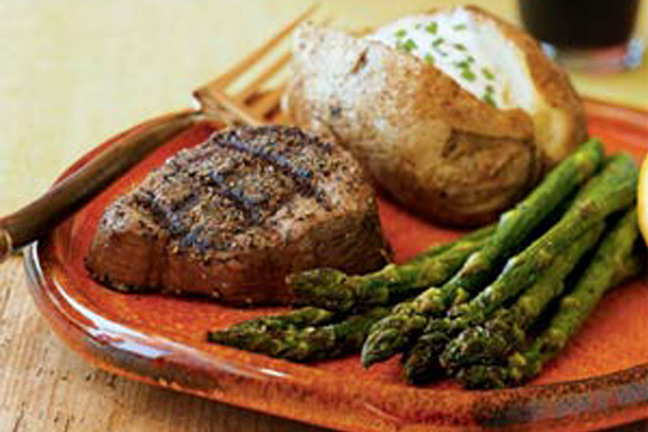
Agricultural News
Lower Gas Prices Helping Domestic Beef Demand
Tue, 20 Jan 2015 14:25:27 CST

With gasoline prices cut in half, in comparison to last year, American consumers have more money in their pocket. According to Kansas State Extension Livestock Market Economist Dr. Glynn Tonsor said that means for more money for discretionary buying purchases, like beef.
"Going forward we expect that to show up in the form of higher prices basically," Tonsor said. "That has definitely helped the entire protein complex. That's the reason to be bullish on the demand front."
Radio Oklahoma Network Farm Director Ron Hays interviewed Tonsor at the recent American Farm Bureau Federation Annual Convention in San Diego. Click or tap on the LISTENBAR below to listen to the full Beef Buzz feature.
On the flip side, lower prices for crude oil will negatively impact key exporting partners. Tonsor said countries like Russia that are dependent on oil income are likely import fewer protein pounds because of the hit to their economy. Overall Tonsor sees lower oil prices to be bullish in terms of reducing the cost of doing business, increasing consumer income, which will result in higher protein demand domestically.
In the meantime, the nation's Country of Origin labeling policy remains under review by the World Trade Organization. Tonsor said it's hard to determine a timeline for a ruling, but there is limited support for the policy.
"The message has been pretty clear from the WTO multiple times, that it is not trade compliant," Tonsor said. "There is a growing, I would call groundswell, of push back against COOL within production ag domestically. I think there is political pressure to change something with it. But in terms of timelines, I have learned a lesson and I will not make any predictions on timelines because this could go on for a lot longer than a rational mind like me might expect it to."
Kansas State University has studied the effectiveness of the nation's COOL policy. Tonsor said the study showed COOL increases costs to comply with the law and that has to be offset with some kind of benefit. COOL supporters have said the benefit is in the increase in beef demand. Tonsor said K-State has studied both the 2009 and 2013 COOL versions and the result has been the same in finding no evidence of a meat demand pump from COOL.
"The core reason for that I would argue is, the public is not aware that there is origin labeling and there wasn't a lot of voluntary labeling to start with," Tonsor said. "As a free-market economist, I would sit here and argue that if it was really valuable there would have been more free market voluntary differentiation of products to start with."
The Beef Buzz is a regular feature heard on radio stations around the region on the Radio Oklahoma Network- but is also a regular audio feature found on this website as well. Click on the LISTEN BAR below for today's show- and check out our archives for older Beef Buzz shows covering the gamut of the beef cattle industry today.
WebReadyTM Powered by WireReady® NSI
Top Agricultural News
More Headlines...



















